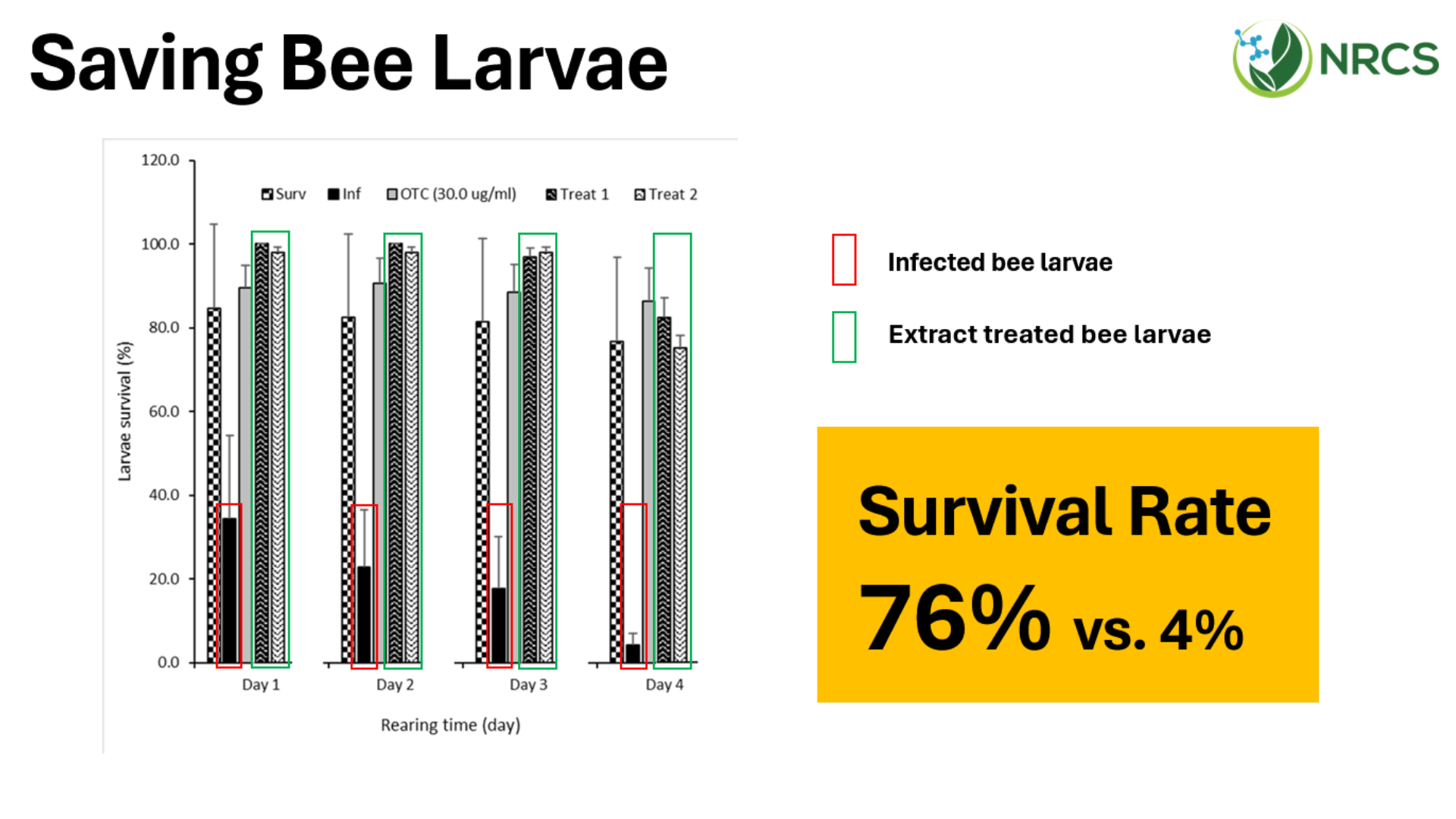The results below are findings from a collaborative study between the National Bee Diagnostic Centre (NBDC) and Nature Recombined Sciences, evaluating the protective effects of our proprietary extract on bee larvae against Melissococcus plutonius, the causative pathogen of European Foulbrood (EFB). The purpose of this study was to assess the potential of our extract to enhance the immune response in bee larvae and its effectiveness in mitigating pathogen-induced mortality.
Infected bee larvae were partitioned into two groups following the introduction of Melissococcus plutonius to their diet: a control arm and an experimental arm. The control group underwent an infection protocol where the pathogen was fed to the larva and then were left alone. The experimental group received daily feedings of our extract together with the pathogen in the diet. The study tracked the progression of larval health for 6 days and recorded relative survival rates.
Results:
Control Group Survival:
Initial infection survival in control group: 4% survived.
Experimental Group with Extract:
Infection survival rate: 75% - 80% survived.
These results demonstrate a significant reduction in pathogen-induced mortality among larvae receiving our extract compared to the control.

The increase in survival rate to 76% in the presence of our extract supports its effectiveness against Melissococcus plutonius. This protective effect is observed even when administered post-infection at the early developmental stages of bee larvae.
By substantially lowering mortality rates and potentially enhancing the larval immune system, the extract proves beneficial for preventative pathogen management, signifying its merit as a pre-emptive solution.
The findings suggest that our proprietary extract may offer a broader protective role in bee health, indicating potential for application across an array of infectious bee diseases.
The promising outcomes of this study necessitate further investigation into the mechanisms underlying the observed protective effect. Long-term studies to assess any alterations in adult bee health, potential longevity, and hive population growth are also warranted.
Our partnership with the NBDC has yielded compelling evidence for the protective capacity of our extract against Melissococcus Plutonius in bee larvae. This has significant implications for the beekeeping community, paving the way for a new approach to pathogen defense that merits continued research and development.
For more detailed information, please refer to the full study report, which outlines the complete methodology, raw data, and supplementary findings. We look forward to advancing this research and its potential impact on bee health and honey production.